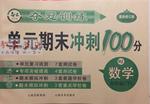题目内容
China always plays ___ active part in fighting against ___natural disasters.
A. /; the B. an; the
C. an;/ D /; /
C
【解析】考查冠词辨析。“在对抗‘自然灾害’方面中国经常起到积极的‘作用’。”该句中“作用”和“自然灾害”均为泛指,所以构成 a part和disasters.且固定搭配:“play a/an…part in…”:在…中扮演角色;在…中起到作用。故正确答案为C.
考点:冠词用法辨析

练习册系列答案
 夺冠训练单元期末冲刺100分系列答案
夺冠训练单元期末冲刺100分系列答案
相关题目